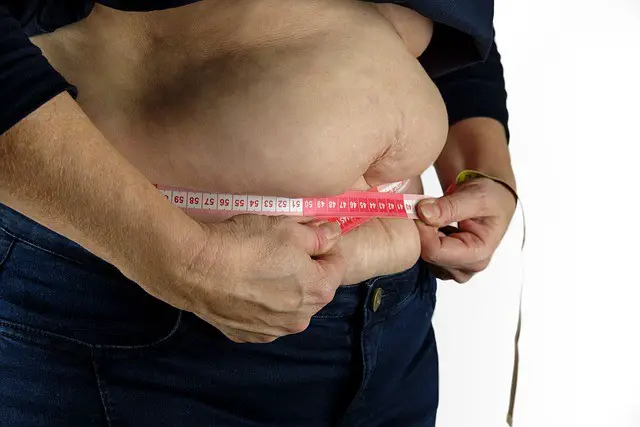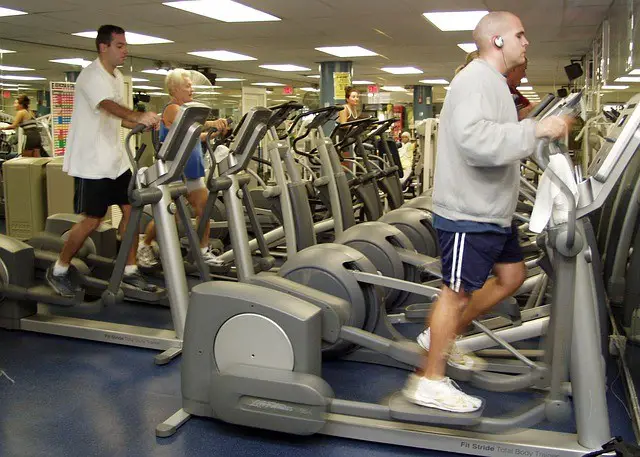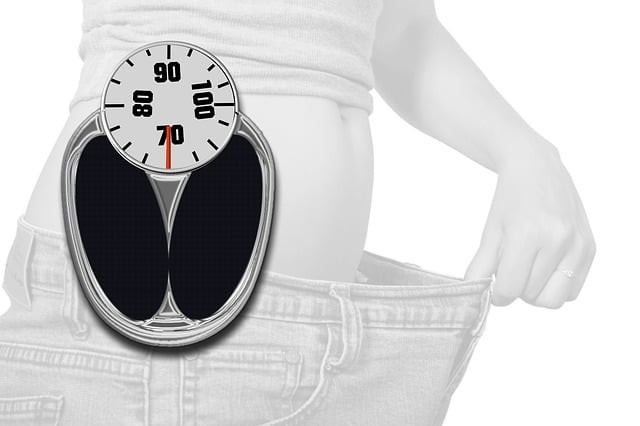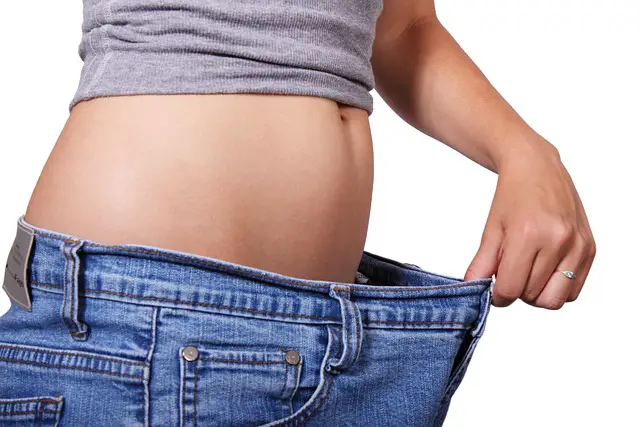Losing weight can be an actual task, especially if you do not know how to go about it. In some cases, you do know what to do but putting this information into practice becomes your greatest challenge. What is your way forward?
Diet and a good exercise routine play a key role in assisting with weight loss. For physical activity, you mainly listen to what your body is saying and build on that gradually. What you eat, here’s where your major concerns begin. But, isn’t that why I’m here? To make what you eat less of a concern because you have the right information with you. I tend to believe this is why we’re both here!
You have been told to follow the ketogenic diet, you have the right information on how many carbs you should consume and what your fat intake should be. Although, with all dietary guidelines of keto, your macro intake is given as a percentage of your daily calories, meaning calorie counting is as important as carb counting.
The fewer calories you consume the more weight you will lose. But, how many calories is considered eating fewer calories? What should my daily calorie intake be for sustainable weight loss? How do you go about calorie counting? Are there effects of consuming too few calories in the name of weight maintenance?
Today’s article will help you answer all these questions. You will learn about your recommended calorie intake weight loss, why it is important to track the number of calories you consume, and what to look for when picking a good calorie calculator.
What is a Calorie?
Dietitians are so fast to tell you how many calories you need to eat for weight loss and even weight gain, but no one ever stops to think, what is a calorie? This thing plays a key role in managing your body weight, what is it?
In the simplest terms, calories refer to the amount of energy you get from food consumption to help with your body’s metabolic function. The more complex definition is a calorie is how much energy is needed to raise water temperature by one degree. You can get calories from the foods you consume, which are then converted to energy.
Types of Calories
When you’re counting calories it is necessary to know where your calories come from, which ones are good and which ones are bad, and the types of these calories you should consider when you’re looking at how many calories you have consumed.
Small Calories
These types of calories are not used when it comes to food consumption because they are really small and at times insignificant. Small calories refer to how much energy you need to raise the temperature of a gram of water by one degree. The unit for this type is cals.
Big Calories

Also known as large calories, refer to the amount of energy needed to raise the temperature of a kilogram of water by a degree. The unit for big calories is kilocalories (kcals) and it is what is usually used when it comes to food.
Empty Calories

You have heard of empty calories right? When next you hear them, let it register in your mind that these are calories you are consuming with no nutritional value whatsoever. Sources of empty calories include alcohol, sweets, condiments, baked foods, sugary or carbonated beverages, and desserts.
Do you know why your registered dietitian asks you to get fewer calories from these foods? Because eating them increases the number of calories you are consuming without adding any health benefits to your body. More calories from these foods increase caloric intake promoting weight gain. They also increase food cravings which further increases the intake of calories.
Liquid Calories
This kind is often overlooked because the body does not detect them the same way it would calories from solid food. If you know them as stealth calories, same difference! Liquid calories come from fluid foods including beverages, juices, broths, and soups.
Whenever you have any liquid foods ensure you check how many calories it contains and adds it when counting calories.
What are the Factors That Influence Caloric Intake?

We don’t all need the same amount of energy. You may live, work and even eat with someone daily yet they have different calorie needs. What creates the difference in the number of calories each needs to consume? Sex, age, and activity level are major factors that influence your calorie needs. Other factors include:
- Overall health
- Body weight
- Body shape
- Height
- Basal metabolic rate
This is why your calorie counter has a slot for your age, anthropometric measures, gender, and activity level.
How Many Calories Should I Eat Per Day?
I have mentioned that different factors influence your calorie needs. Dietary guidelines recommend different daily calorie intakes for men, women, and children because of their different energy demands. Before you start counting your recommended calorie intake weight loss, you have to know your calorie range. You will know why, just stick around!
Recommended Calorie Intake for Men
Calorie intake for an adult man ranges from 2,200 to 3,200 cals per day. This range is usually brought about by age, the older you are the fewer calories you require. This is because older men have less muscle mass and lower physical activity. Men require more energy than women, however, because they have more muscle mass. This is the recommended daily calorie intake for men of different ages:
- 19-30 years: 2400-3000 cals
- 31-59 years: 2,200- 3,000 cals
- 60 years and above 2400-2600 cals
Recommended Calorie Intake for Women
The recommended caloric intake for women of different ages is as follows:
- 19-30 years: 2,000-2,400 cals
- 31-59 years: 1,800-2,200 cals
- Above 60 years: 1,600-2,000 cals
These numbers do not apply to pregnant or breastfeeding mothers because they need more calories due to their increased energy demands.
Recommended Calorie Intake for Children
Childhood obesity in the USA has become a growing issue that has affected the overall health of children and adolescents. The reduced physical activity that has come with the dawn of technological error has played a key role in gaining weight. Junk foods have also made children gain weight because they are high in trans fats.
Statistics show that in 2017-2020, the prevalence of obesity in children 2-19 years was 19.7%, affecting 14.7 million children. For our children not to gain weight, and to maintain a healthy weight, here are the number of calories they should consume at different ages:
- 2-4 years: Males require 1,000-1,600 calories, while females need 1,000-1,400 calories.
- 5-8 years: Males need 1,200-2,000 calories while females need 1,200-1,800 calories.
- 9-13 years: Males require 1,600-2,600 calories, while females need 1,400-2,200 calories.
- 14-18 years: Males need 2,000-3,200 calories, while females need 1,800-2,400 calories.
Stick to a child’s estimated ranges because cutting calories may lead to nutrient deficiencies because their demands increase with age. For an overweight or obese child, work with a registered dietitian to determine the number of calories they need to lose weight without putting them at risk of nutrient deficiencies.
These numbers are from the U.S. Department of Agriculture’s Dietary Guidelines, 2020-2025 for Americans.
Recommended Calorie Intake Weight Loss
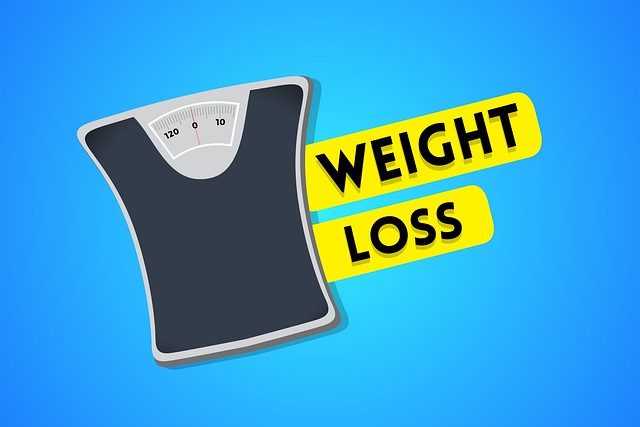
You now know how many calories you need to consume to maintain your current body weight, but are these the same number of calories you need to lose weight? No, they are not! To gain weight, you would have needed to eat more calories than your recommended intake to meet your goal weight. The reverse applies! Reducing calories will help you to lose weight. Let’s see how!
Calorie Deficit and Weight Loss
Your recommended daily calorie intake will provide enough calories for your body to perform its metabolic functions. When you eat more calories your body will use what it needs to provide energy, and the rest is converted to fat reserved in fat stores for use when you don’t meet your calorie needs. This increase in fat stores when you consume more calories than your body needs, increases your body fat percentage promoting weight gain through fat mass.
If the tables are turned, and you and the number of calories you are consuming are less than what your calorie needs, then there’s a shortage of energy for metabolic function. This shortage is what we refer to as a calorie deficit. A calorie deficit occurs when your daily calories are less than your total energy expenditure.
How is calorie deficit necessary for losing weight? Remember your fat stores? Those that your body reserved for when it wasn’t getting enough energy. A caloric deficit will force your body to burn this fat. Your body burns fat for energy through a process known as ketosis. This is common when you are in fasting or starvation mode or are consuming a low-carb diet.
Counting calories is important for weight management, whether it is for gaining weight or you want to lose weight. To gain weight a calorie surplus is needed (more calories than the recommended intake), while to lose weight you need a calorie deficit.
One thing that is important to mention when it comes to creating a calorie deficit to help you lose weight is your body can adapt to using fewer calories to function. When this occurs, how many calories you consumed that helped you in losing weight may not trigger weight loss anymore. This is what is referred to as the plateau effect or metabolic adaptation.
What am I trying to say? Calorie deficit alone is not feasible for sustainable weight loss because your body can get used to staying for a long period consuming fewer calories.
Recommended Calorie Intake Per Day for Weight Loss
Now that you know about calorie deficit, how many calories do you need to lose weight? The ideal calorie intake when trying to lose weight is a calorie deficit of 500-1000 cals less than the calories you need to maintain weight.
However, this can vary when physical activity is involved. Physical activity increases the number of calories burned so the calorie deficit created will be higher. Do not consume less than 1,200 calories when trying to reach a healthy weight.
Fad diets lower your calorie intake per day to 1,000 to 1,200 calories and recommend a high-intensity workout for weight loss. Lowering your daily calories to such low levels deprives your body of the energy it needs to function and may cause adverse effects on your body. Adding exercise on top of this increases calories burned when you already don’t have enough to function.
Fad diets are not healthy weight loss methods and will do you more harm than good. A healthy diet is best when it comes to weight management. We will discuss what to eat when trying to lose weight beyond just a balanced diet, so keep reading.
What is the Importance of Counting Calories?
So why is creating a calorie deficit by adhering to your recommended calorie intake weight loss important to your health?
Support Weight Management
A calorie deficit promotes weight loss. Research has been done to assess the safety and efficiency of low-calorie diets to maintain weight loss and they are a good nontherapeutic treatment for overweight and obesity.
A study investigating the effects of a low-calorie ketogenic diet resulted in a 20% weight loss in renal and obese patients. Another randomized study on weight maintenance and weight loss on intermittent calorie restriction and calorie restriction showed a greater weight loss with intermittent calorie restriction than with calorie restriction.
Whichever weight loss diet you go for, ensure it does not lower your calories too low that you are constantly in starvation and feeling hungry. When calories drop too low, your body will start breaking down lean body mass for energy which leads to muscle wasting.
Reduce Oxidative Damage
Recent studies have shown that excess consumption of glycated end products and/or macronutrients has been associated with increased local and systemic pro-inflammatory biomarkers. The mechanism of action identified to cause inflammation is the increase in lipopolysaccharides.
Inflammation is the root cause of developing chronic diseases. Lowering calorie intake will reduce the expression of insulin-like growth factor 1 (IGF-1) which regulates the growth of bones and tissues. Studies have shown that an increase in this hormone increases one’s risk of developing cancer. It has also been shown that short-term consumption of a very low-calorie diet can reduce oxidative stress in diabetic patients.
May Promote Longevity
Don’t celebrate just yet, I said: “may”. An animal study was done to investigate the effects of calorie restriction on longevity resulting in a 10% extension in lifespan when daily calorie intake was restricted to 30% of recommended calories. It also showed that aligning calorie daily feeding with circadian alignment (your body’s internal clock) resulted in a 35% extension in lifespan.
More studies are needed to better understand the mechanism of action of a calorie deficit on longevity when all other factors are considered in a human study.
Promotes Mental Health
Reducing how many calories you eat can help regulate stress levels. Unhealthy dietary patterns, consumption of highly refined sugars and processed foods, and inadequate dietary protein and tryptophan have been related to increased anxiety levels.
Research confirms that a ketogenic diet, intake of foods rich in omega 3, caloric restriction, and intake of broad-spectrum micronutrient supplementation were associated with lower anxiety levels. See a balanced diet does more for you than just managing your weight!
Improves Heart Health
This can be linked to reduced inflammatory biomarkers and oxidative stress when consuming a low-calorie dense diet. A study that investigated whether a proinflammatory diet increased the risks of developing cardiovascular disease reported that consuming diets that cause inflammations were associated with an undesirable lipid profile, lower levels of adiponectin, and higher circulating proinflammatory biomarkers.
A time-restricted diet (16:8 intermittent fasting) when resistant training decreases fat mass, maintains fat-free mass and lean mass, and decreases levels of IGF-1 in the bloodstream. It also decreases leptin levels and increases adiponectin. Lipid profile was also improved.
This shows that time-restricted calorie deficit can reduce cardiovascular disease biomarkers lowering risks of developing heart problems.
Improves Blood Sugar Regulation
Insulin resistance is an important aspect to look into because it mediates metabolic syndrome and can predict its diagnosis. One study compared the effects of different calorie restriction diets including the classic keto diet (CKD), intermittent fasting (IF), Spanish ketogenic Mediterranean diet (SKMD), Fasting mimicking diet (FMD), and a very-low-calorie ketogenic diet.
CKD was found to be the most effective type of ketosis-inducing diet in weight management and management of the metabolic syndrome. It worked to prevent muscle loss and control appetite thus regulating blood sugars.
What are the Disadvantages of Being on a Calorie Deficit Diet?
There can be disadvantages of a calorie deficit and they include:
May Slow Down Metabolism
As mentioned, once your body gets used to using fewer calories it leads to metabolic adaptation. Your metabolic rate can reduce by 23% on a low-calorie diet when this state is achieved. A study reported that weight gain was not observed after 6 years and weight loss was maintained, however, a concurrent metabolic slowing was observed.
The slow metabolic rate can continue even after you stop your calorie-deficit diet.
This Can Lead to Nutrient Deficiencies
Restricting your intake of certain foods can cause you not to meet your daily nutrient needs. Calorie restricted diet can lead to the deficiency of some micronutrients like folate, vitamin B12, and iron.
At the start of a ketogenic diet, while exercising, you may experience fatigue and reduced performance because your body is trying to adapt to using ketones as an energy source rather than glucose. You may experience the keto flu which subsides after one or two weeks, once your body is fat-adapted.
Use broad-spectrum micronutrient supplements when on a calorie-deficit diet to ensure you meet all your nutrient needs.
May Compromise Your Immunity
Restricting calories may lower your immunity especially if you increase calorie demands while on a calorie deficit. Most studies showed that highly active individuals who restrict their intake of calories had a higher risk of developing viral infections like the common cold.
A study on male Taiwanese taekwondo athletes on intensive training and rapid weight loss’s immunological parameters and antioxidation activity were assessed. The results show that levels of mucosal immunity were regulated by weight loss and exercise. Prolonged exercise and reduction in weight compromised mucosal immunity increasing the risk of upper respiratory tract infection.
Promotes Disordered Eating

Calorie counting increases your risk of developing an eating disorder. Eating disorders include bulimia nervosa, binge eating, and anorexia. A recent study examined the relationship between using calorie-tracking apps and fitness trackers and disordered eating behaviors and attitudes. This study’s findings show that the tracking technology may cause more harm than good since their usage increased dietary restraints controlling for body mass index (BMI).
What to Look for in A Weight Loss Calorie Calculator
A calorie calculator can help tell you your recommended calorie intake weight loss or weight gain based on your current weight, height, age, gender, and activity levels. Accuracy is key when using a calculator because it helps you tailor your needs to be specific to you.
A good calorie calculator should have a provision for your age, gender, activity levels, height, weight, goal weight, and period to achieve said goals. If your calculator doesn’t require this information, then it is lacking and may not be accurate. Now, how does that calculator work to give you how many calories you should eat for weight loss based on the info you put in?
It considers three things:
- Thermic effect of food: This is the energy required for digestion. Your body uses approximately 10% of calories for this.
- Basal Metabolic Rate (BMR): Your calculator estimates this depending on your age, weight, height, and gender. This is the amount of energy you need to function properly. Your body uses 60% to 70% of calories consumed for this.
- Physical activity: This accounts for 15% to 30% of the calories burned. Any movement and exercise fall here. The amount burned depends on the intensity of your exercise.
How Do I Calculate a Calorie Deficit?
Know what you get vs what you need
Step one to knowing how much you need for weight loss is knowing how many calories you consume to maintain your current body weight. Before inputting any info, track your food consumption and physical/fitness activity 3 days before calculating your needs.
You now know how many calories you eat in a day, right? Now estimate how much you need based on your activity level. Here’s the formula depending on how many times you work out:
- If you don’t work out, multiply your body weight by 10.
- If you work out once or twice a week, multiply your weight by 12.
- If you work out twice to four times a week, multiply your weight by 14.
- If you work out five or more times a week, multiply your weight by 16.
What you have there is how many calories your body needs to run its day-to-day activities. Compare this number to the number of calories you consumed (what you tracked). Is there a difference? Is this number higher than what you get from your food? There you go ladies and gentlemen; we have a calorie deficit!
If this number is higher than what you’re eating then you have a calorie surplus which means you will gain weight.
Know How Much You Burn
If you have a surplus, aim to lower your intake gradually. Start by reducing 200 cals per week until you have reduced intake by 500 to 1000 cals depending on how large the surplus is.
You can lower the number of calories by reducing intake or increasing calories burned. Remember not to go below 1200 cals per day. You can balance between the two, slightly lowering intake and increasing the burning of calories by doing low to moderate-intensity exercises like running and walking.
How much you burn depends on your BMR, the thermic effect of food, and physical activity, all of which your calculator will do for you.
How Do You Create A Calorie Deficit?
To meet your recommended calorie intake weight loss, you need to create a calorie deficit by following these tips:
- Increase your physical activity to increase the calories you burn further creating a higher nutrition demand. It will also help you gain muscle rather than fat mass which can help with losing weight.
- Try a high-protein ketogenic diet. Increased protein intake will increase satiety and curb hunger which lowers food intake helping you stay within your recommended calorie intake weight loss.
Eat high-quality sources of protein like lean meats, eggs, seafood, and fatty fish. Increasing fat intake by eating healthy fats will promote ketosis. Healthy fats come from nuts and seeds, seafood, fatty fish, olive oil, coconut oil, and avocado.
Avoid highly processed meats like deli meats, patties, and sausages. Lowering carb intake will promote the breakdown of fat increasing weight loss. Replace high-starch carbs like whole grains and root tubers with non-starchy vegetables to meet your carb limit.
- Avoid sugar. Sugary foods and drinks have a high glycemic index and load meaning they can spike your blood sugars increasing risks of insulin resistance. Intake of sugary foods can also trigger carb cravings.
- Stay hydrated by drinking plenty of water.
- Stay away from processed foods and junk foods high in trans fats and excess saturated fat.
- Read nutrition labels to know the constituents of your foods, especially the macronutrient content.
Can Eating Too Little Calories Cause Weight Gain?
Eating too little is subjective because it depends on how much you’re eating and how often you eat. You may be gaining weight while eating too little because you’re not eating the right foods. If your diet includes calorie-dense foods from unhealthy sources, then you are bound to gain weight even on a calorie-restricted diet.
Another reason could be you eating too little triggering your body to enter starvation mode. In this state, your metabolism is slower, and energy is low. You won’t experience any weight loss if your body is breaking down the little it has at a slower rate.
Final Thoughts
Eating less than what your body needs can create a calorie deficit which can help you to lose weight. However, be careful how low you go because not getting enough will do your body more harm than good. Speak to a health coach to assist you in getting all the right information on calorie counting and intake for healthy weight loss.
Have you used a calorie calculator before? What is your recommended calorie intake weight loss as per your calculator? What time have you set to achieve your goal weight? Let us know in the comments below!

